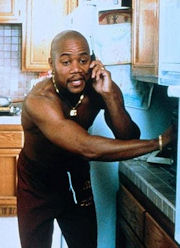by James A. Bacon
Virginians need to wake up and realize that scoring a No.1 or No. 2 ranking on Forbes Magazine‘s “Best States for Business” has very little correlation with actual economic performance. It’s a nice sobriquet but as Cuba Gooding Jr. said in the movie Jerry Maguire, “Show me the money.”
When it comes to such measures of economic well being as number of jobs created, wage/salary levels and growth in high-tech jobs, Virginia’s so-called Golden Crescent is not exactly gleaming. According to the Milken Institute’s recently published “Best Performing Cities 2012,” the Washington region (which includes Northern Virginia) logged a very respectable No. 5 ranking among the nation’s 200 largest Metropolitan Statistical Areas (MSAs) in 2012, but Richmond came in at 68, Hampton Roads at 139 and Roanoke at 142.
If you deem Washington’s outlier performance as an artifact of unsustainable federal spending — the Milken report says that Fairfax County could lose 87,000 jobs, or 13% of its workforce, from looming budget cuts — those rankings for the locomotive regions of Virginia’s economy are not remotely consistent with the “best state” in the union for business.
For what it’s worth, Virginia’s smaller MSAs did turn in a respectable performance last year. Charlottesville ranked No. 11 among the 179 small MSAs tracked, Harrisonburg 22, Blacksburg 32, Danville 49, Winchester 67, and Lynchburg 72 — every one outperforming the national average. Notably, the top three are all college towns. Even Danville, which has long been the poster child for failing Southern mill towns, looks like it may have turned the corner. (Hat tip to Hamilton Lombard.) That’s all very encouraging but the smaller metros, collectively speaking, figure less than even the smallest of the big three metros (Richmond) in economic impact.
Bacon’s bottom line: As Tom Petty once crooned, it’s wake-up time. Unfortunately, everyone is still asleep. Outside of the most poverty-stricken regions of Virginia, I detect no concern that anything might be awry. I believe that the problem emanates from the top. The governor’s office (not just for the McDonnell administration but every administration preceding it) publicizes positive recognitions such as the Forbes Magazine ranking and positive developments such as new plant openings while downplaying the negative. The emphasis on good news is intrinsic to the office. After all, every governor wants to make himself look like a success, not a loser.
But the problem runs even deeper. The people serving four years in the governor’s office are rarely experts in economic development. They are largely captive to the state’s economic-development institutions — the Virginia Economic Development Partnership, the Tourism Office, the Department of Agriculture, the Department of Business Assistance and the like — whose career administrators (a) naturally and understandably want to put a positive spin on the job they are doing and (b) are unlikely to call for radical new thinking about economic development that might siphon resources to other priorities.
And even deeper… Virginia’s business and civic leaders are slaves to the mid-2oth century paradigm of economic development embodied in the “Best States for Business” methodology. Rather than push for more innovative approaches to economic development, they lobby for more spending on transportation, more spending on schools and higher taxes on everybody but themselves to pay for it. Virginia’s sluggish performance represents a collective failure.



